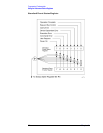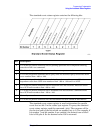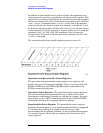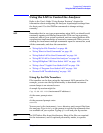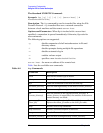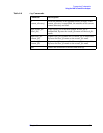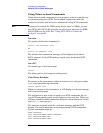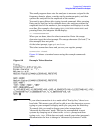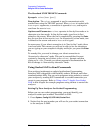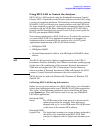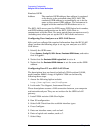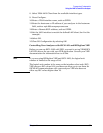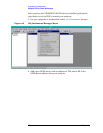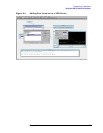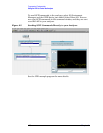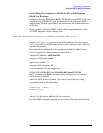
94 Chapter 2
Programming Fundamentals
Using the LAN to Control the Analyzer
The Standard UNIX TELNET Command:
Synopsis telnet [host [port]]
Description The telnet command is used to communicate with
another host using the TELNET protocol. When telnet is invoked with
host or port arguments, a connection is opened to host, and input is
sent from the user to host.
Options and Parameters telnet operates in line-by-line mode or in
character-at-a-time mode. In line-by-line mode, typed text is first
echoed on the screen. When the line is completed by pressing the
Enter
key, the text line is then sent to host. In character-at-a-time mode, text
is echoed to the screen and sent to host as it is typed.
In some cases, if your telnet connection is in “line-by-line” mode, there
is no local echo. This means you will not be able to see the characters
you are typing on your computer's display until after you press the
Enter
key.
To remedy this, you need to change your telnet connection to
“character-by-character” mode. This can be accomplished in most
systems by escaping out of telnet to the telnet> prompt and then
typing mode char. Consult your telnet program's documentation for
how to change to “character-by-character” mode.
Using Socket LAN to Send Commands
Your analyzer implements a sockets Applications Programming
Interface (API) compatible with Berkeley sockets, Winsock, and other
standard sockets APIs. You can write programs using sockets to control
your analyzer by sending SCPI commands to a socket connection you
create in your program. Refer to Using a Java™ Applet Over Socket
LAN in this chapter for example programs using sockets to control the
analyzer.
Setting Up Your Analyzer for Socket Programming
Before you can use socket programming, you must identify your
analyzer’s socket port number. The default is 5025:
1. Press
System, Config I/O, SCPI LAN, Socket Port.
2. Notice that the port number you will use for your socket connection
to the analyzer is 5025.



